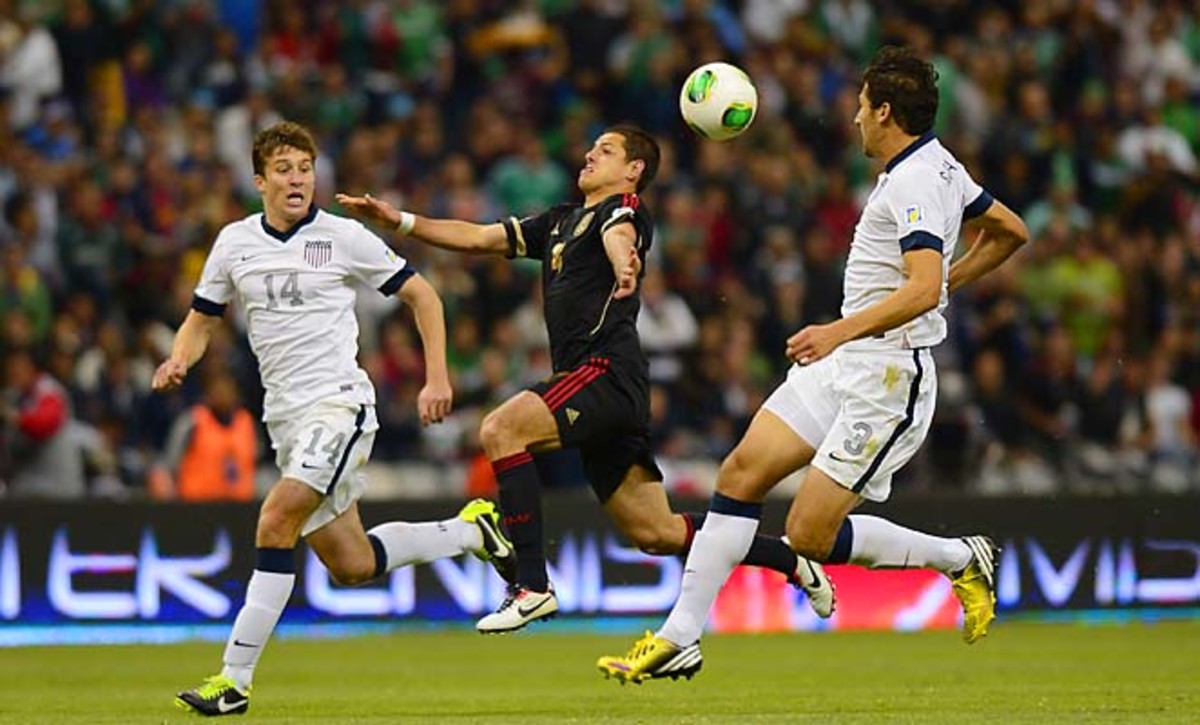FIFA: World Cup qualifying is clean of match fixing
FIFA's top investigator believes the 2014 World Cup qualifying program has been clean of match-fixing after more than 500 matches played so far.
"Up to now we don't have any leads that any match has been thrown,'' FIFA security director Ralf Mutschke told The Associated Press on Friday. "We are also confident that nothing will happen through the qualification.''
The full program of about 820 preliminary matches ends in November.
Hours before Mutschke spoke on the sidelines of a FIFA-sponsored conference on match-fixing and betting, football's governing body reached agreement with South African officials on how to complete an investigation into the 2010 World Cup host's allegedly manipulated warm-up matches ahead of the tournament.
South Africa's government will set up an independent commission to examine how now-convicted fixer Wilson Raj Perumal apparently hired referees to fix match results. The case could implicate national football body president Kirsten Nematandani, who attended the meeting at FIFA headquarters.
Across FIFA's home city, president Sepp Blatter and anti-corruption adviser Mark Pieth addressed delegates at a conference that also studied ethical management in sports.
Blatter confirmed that the issue of stripping his 97-year-old predecessor Joao Havelange of the honorary FIFA presidency following a kickbacks scandal could be discussed at next month's congress of 209 football nations in Mauritius.
FIFA's betting monitoring subsidiary, Early Warning System, hosted its two-yearly gathering two months after Europol, the European Union police liaison agency, said it reviewed 680 suspicious recent cases of fixing, including some World Cup games.
"This is stuff from the past,'' Mutschke said. "I understand they were old qualifiers and not for this tournament.''
In the only recent prosecuted case of World Cup match-fixing, UEFA banned a Bosnian referee for life for colluding with a Croatian-led syndicate for a betting scam tied to his handling of a qualifier between Liechtenstein and Finland in September 2009.
Mutschke, a German former Interpol officer, suggested that clubs being infiltrated by mafia figures were at more risk than FIFA's signature event.
"The infiltration of organized crime on a club level is more than I expected a year ago, even in Europe,'' he said. "They are basically offering, like a sponsor or investor, to help out with financial problems, offering to pay salaries for the players because of match-fixing.''
With football relying on national law enforcement agencies, Mutschke and Interpol sports integrity specialist Michaela Ragg stressed co-operation was crucial in the long-term fight against fixing.
FIFA got just that from South Africa sports minister, Fikile Mbalula, as his government agreed to lead a match-fixing probe that has stalled and resulted in football leader Nematandani being suspended from office and then reinstated within weeks.
FIFA and the South Africa Football Association haven't identified which matches might have been fixed but a 5-0 win over Guatemala and 2-1 win over Colombia in May 2010 have long been under suspicion. Three penalties were awarded in each match, most for handball offenses.
The "long-standing case'' was harming South African football, FIFA secretary general Jerome Valcke said, promising advice and help from Zurich to Pretoria.
"It is vital that this matter which dates back to 2010 is concluded soon, with the culprits to be sanctioned in accordance with the zero tolerance policy,'' Valcke said.
Havelange's honorary status within FIFA is in question ahead of the May 31 congress, which has authority to remove it. Blatter said last July that his predecessor "cannot remain honorary president'' after a Swiss prosecutor's report was published confirming that Havelange received millions of dollars from World Cup broadcasting deals in the 1990s.
"There has not been any proposals on that (to strip Havelange's title) but it's on the agenda,'' Blatter said.
In his speech, Blatter supported "drastic sanctions'' to combat racism at matches but questioned his previous faith in points deductions for clubs leading to relegation, because some fans could exploit the looming threat.
"We have to do something,'' Blatter later told reporters. "But the danger is if we say the match will be replayed, or there will be a deduction of points, or whatever, this can open the door to groups of, let's say, bad hooligans to create these problems.''
He has appointed FIFA vice president Jeffrey Webb to lead a task force which will eventually propose a code of sanctions.
Blatter left the hall as scheduled before a speech by Pieth, who has fought to urge FIFA to adopt transparency reforms after cash-for-votes scandals and allegations.
Pieth seized his chance to suggest that Switzerland had a "simple, brutal'' option to persuade sports organizations it hosted to modernize: "If there's no governance, there's no tax exemption.''
The Swiss law professor told The AP that his expert panel of advisers will meet on April 16-17 to prepare a final report urging change on FIFA, which banks $1 billion-plus of untaxed annual commercial revenue.
"There is still a lot happening behind the scenes'' with FIFA member countries, Pieth said, acknowledging "formidable challenges'' to pass the reforms he seeks at the congress.






